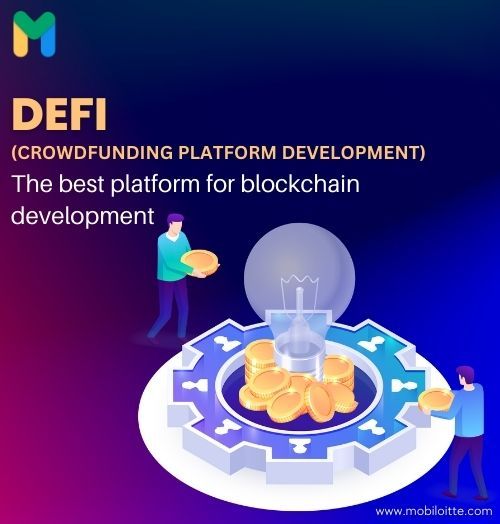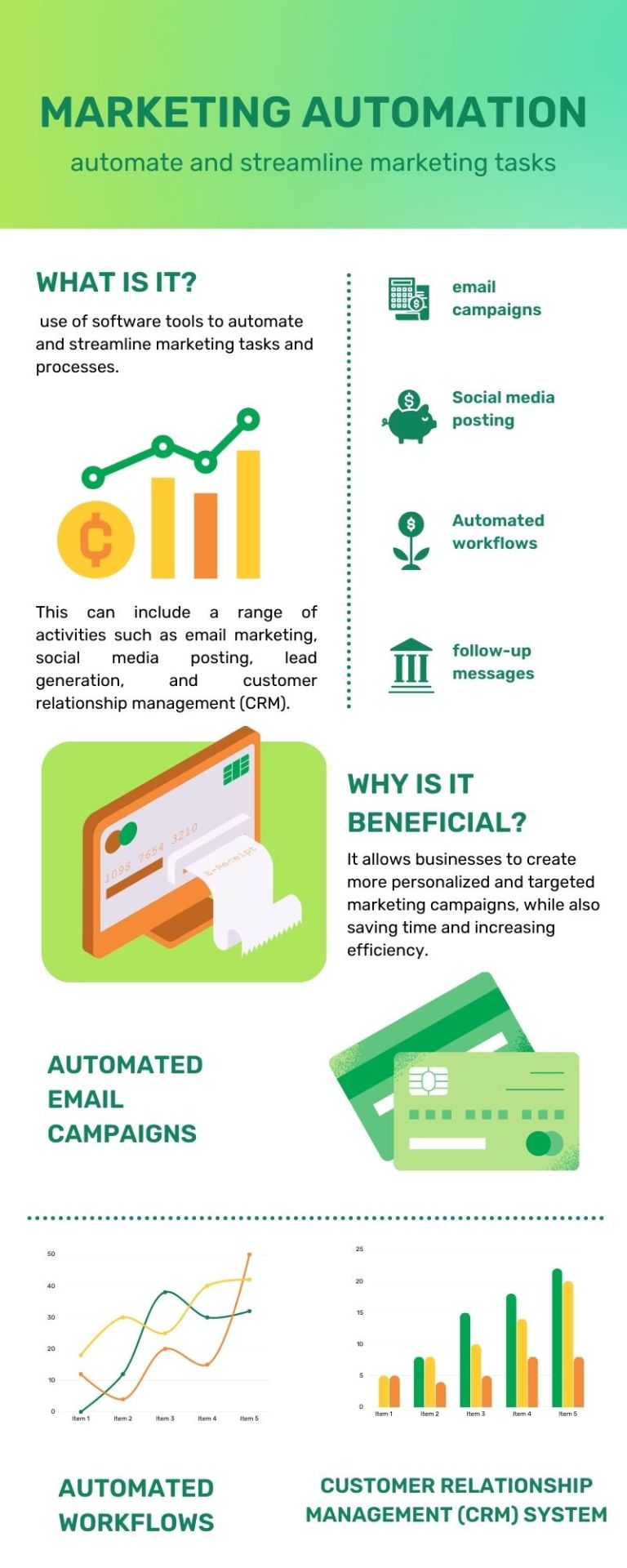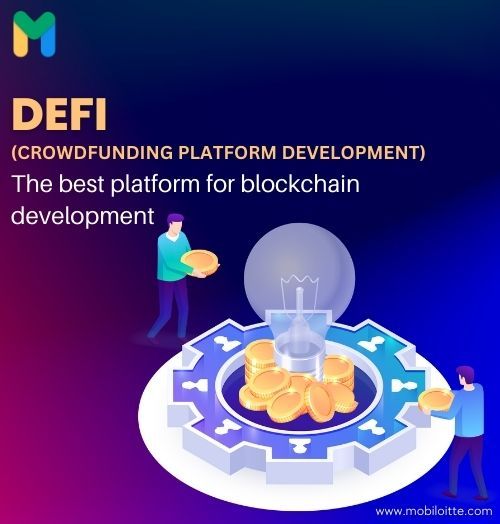#what is marketing automation
Text
13 Best Marketing Automation Software (2023 Comparison)
13 Best Marketing Automation Software (2023 Comparison)
Looking for a roundup of the best marketing automation tools? You’re in the right place!
If you’re trying to run a business, it makes sense to automate as many repetitive tasks as you can – and that’s where marketing automation software comes in.
These tools can help you to better optimize your campaigns, simplify your workflows, and take care of many of the regular day-to-day tasks involved in…

View On WordPress
#best marketing automation#email marketing#email marketing automation#email marketing software#marketing automation#marketing automation explained#marketing automation for small business#marketing automation platforms#marketing automation software#marketing automation strategy#marketing automation tool#marketing automation tools#marketing automation tutorial#small business marketing automation#what is marketing automation
0 notes
Text
#what is decentralized finance#DeFi in Web3#Decentralized Finance Web3#decentralized exchange#Applications of DeFi#NFT in DeFi#automated market makers#DeFi Ecosystem#DeFi in Traditional Finance#Digital Assets in DeFi
0 notes
Text
Quick Metrix-Unlocking Success with a Unified Customer Experience Management Platform
"Quick Metrix" is an online reputation management (ORM) tool that assists individuals and businesses in monitoring and enhancing their online image. It offers a suite of features and functionalities to manage and analyze online reputation effectively.
Here's a summary of Quick Metrix as an Online Reputation Management (ORM) tool:
Sentiment Analysis: Quick Metrix uses natural language processing (NLP) and machine learning to analyze online mentions, reviews, and comments, determining sentiment as positive, negative, or neutral.
Mention Monitoring: It continuously tracks various online platforms, including social media, review sites, forums, and news articles, to identify and monitor mentions of your brand, name, or specified keywords.
Alert System: Quick Metrix provides real-time notifications when it detects negative mentions or emerging reputation issues, enabling prompt response and reputation management.
Response Management: The tool offers assistance in crafting appropriate responses to online reviews and comments, ensuring timely and consistent engagement with your audience.
User-Friendly Dashboard: Users have access to a user-friendly interface where they can access all ORM-related features, review data, and track responses easily.
Performance Metrics: It provides valuable insights into key performance metrics, including sentiment trends, engagement rates, and other relevant data, allowing users to assess the impact of ORM efforts.
Competitor Analysis: Quick Metrix can compare your online reputation and social media performance with competitors, helping identify areas for improvement and competitive positioning.
Quick Metrix can revolutionize your approach to Social Media Reporting.
The Power of Data-Driven Insights
Social media is not just about posting content; it's about understanding your audience, measuring engagement, and optimizing your strategy. Quick Metrix provides you with a comprehensive suite of tools to turn your social media data into actionable insights.
1. Real-Time Analytics
One of Quick Metrix's standout features is its ability to provide real-time analytics. In an era where trends and conversations change rapidly, having access to up-to-the-minute data is invaluable. Quick Metrix ensures you're always in the know about what's happening with your social media presence.
2. Customized Dashboards
No two businesses are the same, and neither should their social media reports be. Quick Metrix allows you to create customized dashboards that focus on the metrics that matter most to you. Whether it's engagement rates, follower growth, or click-through rates, you can tailor your dashboard for your specific goals.
3. Competitor Analysis
To stay ahead in the digital world, you need to know what your competitors are doing. Quick Metrix's competitor analysis tools allow you to track your competitors' social media performance, benchmark your own performance against theirs, and uncover opportunities to outshine them.
4. Sentiment Analysis
Understanding how your audience feels about your brand is essential. Quick Metrix's sentiment analysis feature uses AI to gauge public sentiment in real time. Whether it's positive, negative, or neutral, you'll have your finger on the pulse of your brand's perception.
5. Historical Data
In addition to real-time data, Quick Metrix stores historical data, enabling you to identify long-term trends and measure the impact of your campaigns over time. This historical perspective is invaluable for making informed strategic decisions.
6. Cross-Platform Integration
Managing multiple social media platforms can be overwhelming. Quick Metrix simplifies this process by integrating with various social media channels, allowing you to view all your data in one place. This streamlines your reporting efforts and saves you time.
7. Actionable Insights
Quick Metrix doesn't just provide you with raw data; it offers actionable insights and recommendations based on your performance metrics. This helps you make informed decisions to optimize your social media strategy continually.
Why Quick Metrix Matters
In a world inundated with data, the ability to extract meaningful insights is a competitive advantage. Quick Metrix empowers businesses to do just that. By leveraging its real-time analytics, customizable dashboards, competitor analysis, and sentiment analysis, you gain a holistic view of your social media presence.
Quick Metrix isn't just a tool; it's a strategic partner in your digital journey. It equips you with the knowledge and tools to adapt to changing trends, engage with your audience effectively, and outperform your competitors.
Quick Metrix, an innovative Unified Engagement Platform, is changing the game by providing a comprehensive solution for monitoring, enhancing, and optimizing your online presence.
The Challenge of Multichannel Engagement
The internet has evolved into a dynamic ecosystem of social media platforms, review sites, forums, and more. Navigating this landscape while maintaining a consistent and positive online image can be overwhelming. With Quick Metrix, you gain a powerful ally to simplify and streamline your online engagement efforts.
Unifying Your Presence
Quick Metrix excels in offering a unified engagement platform that centralizes your online activities. Here's how it transforms your approach to online presence management:
1. Multichannel Monitoring
Quick Metrix aggregates data from various platforms, providing real-time insights into what's being said about you or your brand across the digital spectrum. Whether it's social media conversations, online reviews, or mentions in forums, you can monitor it all from one dashboard.
2. Response Management
Responding promptly to customer feedback and online mentions is crucial. Quick Metrix makes it easier by allowing you to craft and manage responses seamlessly across different channels. You can maintain a consistent voice and tone while addressing customer concerns effectively.
3. Social CRM
Building and nurturing customer relationships is key to success. Quick Metrix integrates social CRM tools to help you manage and engage with your audience more effectively. Segment your audience, personalize interactions, and track customer journeys for better engagement.
4. Social Analytics
Data-driven decisions are the cornerstone of success. Quick Metrix provides powerful social analytics tools that go beyond basic metrics. Gain deeper insights into sentiment trends, audience demographics, and competitive benchmarks to refine your strategies.
The Quick Metrix Advantage
Quick Metrix is more than just a unified engagement platform; it's a game-changer for anyone who values their online presence:
Efficiency: Save time and effort by managing all your online engagement from a single platform.
Consistency: Ensure a consistent brand image and messaging across all channels.
Insights: Make informed decisions with data-driven insights and analytics.
Customer Satisfaction: Engage with your audience effectively and enhance customer satisfaction.
Reputation Protection: Respond swiftly to negative mentions and protect your online reputation.
Real-World Success Stories
Quick Metrix has already empowered businesses, influencers, and individuals to take control of their online presence. Here are a few success stories:
Businesses: Quick Metrix helped a growing e-commerce brand monitor customer reviews, respond to feedback, and identify trends, leading to a significant increase in customer satisfaction and brand loyalty.
Influencers: A social media influencer used Quick Metrix to manage their engagement across multiple platforms, resulting in higher engagement rates and increased collaborations with brands.
Individuals: A professional used Quick Metrix to monitor their online reputation and personalize their interactions with potential employers, ultimately securing their dream job.
Quick Metrix, a dynamic Social Media Reporting Software, steps in to revolutionize the way you manage and analyze your social media presence.
The Challenge of Social Media Management
Social media platforms are a double-edged sword. While they offer unprecedented opportunities for engagement, they also pose challenges. Keeping track of mentions, monitoring sentiment, and analyzing performance across multiple platforms can be an arduous task. Additionally, understanding what's working and what's not is crucial for a successful social media strategy.
Enter Quick Metrix
Quick Metrix is designed to simplify social media reporting and analysis. It's an all-in-one solution that offers a wide range of features to help you gain valuable insights into your social media performance. Here's how it can transform your social media strategy:
1. Comprehensive Reporting
Quick Metrix aggregates data from various social media platforms and compiles it into easy-to-understand reports. You can track key performance metrics, such as engagement rates, follower growth, and post reach, all in one place.
2. Real-Time Monitoring
Stay ahead of the curve with real-time monitoring of your brand mentions and industry trends. Quick Metrix alerts you to emerging issues or opportunities, allowing you to respond swiftly.
3. Sentiment Analysis
Quick Metrix employs powerful sentiment analysis algorithms to determine the sentiment behind mentions related to your brand or keywords. This helps you gauge public perception and identify areas for improvement.
4. Competitor Analysis
Gain a competitive edge by benchmarking your social media performance against your competitors. Quick Metrix provides insights into what your competitors are doing right and where they might be falling short.
5. Content Performance
Understand which of your posts are resonating with your audience and which aren't. Quick Metrix breaks down the performance of individual posts, helping you fine-tune your content strategy.
6. Customizable Dashboards
Tailor your reporting to your specific needs. Quick Metrix allows you to create custom dashboards with the metrics that matter most to you and your team.
7. User-Friendly Interface
You don't need to be a data scientist to use Quick Metrix. Its intuitive interface makes it accessible to both beginners and seasoned social media managers.
8. Data-Driven Decision-Making
Armed with the insights from Quick Metrix, you can make data-driven decisions to refine your social media strategy. Whether it's adjusting your posting schedule, responding to customer feedback, or launching new campaigns, you'll have the data to support your choices.
Conclusion
Quick Metrix is more than just social media reporting software; it's a strategic tool that empowers you to maximize your social media presence. By simplifying the complexities of social media management and analysis, Quick Metrix enables informed decisions, stronger audience connections, and an enhanced online reputation.
In today's social media-dominated era, Quick Metrix stands as your ally in achieving social media excellence. Take charge of your social media strategy, unlock growth and success, and navigate the digital landscape smarter with Quick Metrix. Your brand's triumph is just a click away.
In the age of the internet, your online presence is paramount. Quick Metrix's unified engagement platform empowers you to streamline efforts and elevate your online image, whether you're a business, influencer, or individual. Your online reputation has never been in better hands.
#Online reputation management tool#social media listening tool#online reputation management tool#online reputation management tools#online reputation management tools in india#tools and strategies of online reputation management#what is online reputation management#online reputation management companies#online reputation management process#online reputation management software#free marketing automation#marketing automation tools#marketing automation meaning#marketing automation platforms#digital marketing automation#marketing automation specialist#best marketing automation software#social media listening tools#free best social media listening tools 2023#free social media listening tools 2023#social media listening and monitoring#social media listening analyst#social media reporting tool#unified engagement platform#social media reporting software#social media insights tool#unified customer experience management platform#social listening india#online reputation metrics#listen to reputation online
0 notes
Text
Two things that are here to mainstays, in Today's digital ecosystem, ChatGPT and affiliate marketing...
You might want to bookmark this article from geeky gadgets for future reference
#reference guide#trending#chatgpt#affiliate marketing for beginners#repost#readmore#entrepreneurship#fortheculture#thedigitaldigest🗞️#digitalculture#social media#aceupdates#aos#affiliate marketing automation tips#how to use ChatGPT for affiliate marketing#market strategy for affiliate offers#whats next in automation supply#how to use automation#make money with affiliate marketing offers#how to earn money#train your algorithm#automate tasks#getting started with ChatGPT#affiliateautomation guide#affiliate marketing ecosystem#optimizing your affiliate offer#reference tools#geeky gadgets#affiliate offer trends#work from home
0 notes
Text

Decentralized Finance Development Services
Mobiloitte offers Defi development services that can help you create a custom Defi platform that meets your specific needs and requirements.
#goose defi#DeFi Lending & Borrowing Software#Defi Lending and Borrowing Platform Development Company#defi lending and borrowing platform development#amm defi platform#amm defi#DeFi Lending & Borrowing Platform#defi exchange development#Automated market maker defi#Decentralized Finance on Binance Smart Chain#defi staking platform development#defi token development company#defi token development#defi development#what is defi crowdfunding#defi development services#defi wallet development solutions#DeFi Crowdfunding Platform#DeFi Crowdfunding Platform Development#benefits of defi crowdfunding#defi development company#defi software#defi consulting#decentralized financial assistance#types of crowdfunding
0 notes
Text
#centers of expertise#coe in business#coe report#coe business#automation coe market#what is coe in business#benefits of coe#coe automation
0 notes
Text

What is Marketing Automation?
Marketing automation allows businesses to create more personalized and targeted marketing campaigns, while also saving time and increasing efficiency. By automating routine marketing tasks, businesses can focus on more strategic activities and free up resources for other areas of the business.
#Online reputation management tool#social media listening tool#online reputation management tool#online reputation management tools#online reputation management tools in india#tools and strategies of online reputation management#what is online reputation management#online reputation management companies#online reputation management process#online reputation management software free#marketing automation#marketing automation tools#marketing automation meaning#marketing automation platforms#digital marketing automation#marketing automation specialist#best marketing automation software
0 notes
Text
Is QuickSwap (QUICK) worth $105.45?
Mr. Market was paying $105.47 for QuickSwap (QUICK) on 21 February 2023. Hence, people will wonder what is QuickSwap and is it worth $105.45?
QuickSwap is a layer-two decentralized exchange (DEX) and Automated Market Maker (AMM). To elaborate, a decentralized exchange is a peer-to-peer (P2P) marketplace that allows people to trade digital assets without depositing money in an account.
An…

View On WordPress
#Automated Market Maker (AMM)#Buy Crypto with Fiat Currency#Is QuickSwap (QUICK) worth $105.45?#QuickSwap (QUICK)#QuickSwap Features#What is QuickSwap?#What Value does QuickSwap (QUICK) offer?
0 notes
Text
Everything You Need to Know About What CRM Stand For
CRM stands for customer relationship management. It is a system businesses use to store and manage data on prospects and customers. This Article will explore what CRM is, how it works, and the benefits it offers to businesses of all sizes.
What is CRM?
CRM is a business tool designed to help organizations stay connected to their customers, improve relationships, and drive marketing campaigns.…

View On WordPress
#business software tools#crm systems#customer data management software#customer support systems#increase business efficiency#integrated marketing automation systems#relationship management tool#what crm stand for
0 notes
Text
Podcasting “Capitalists Hate Capitalism”

I'm touring my new, nationally bestselling novel The Bezzle! Catch me in Torino (Apr 21) Marin County (Apr 27), Winnipeg (May 2), Calgary (May 3), Vancouver (May 4), and beyond!

This week on my podcast, I read "Capitalists Hate Capitalism," my latest column for Locus Magazine:
https://locusmag.com/2024/03/cory-doctorow-capitalists-hate-capitalism/
What do I mean by "capitalists hate capitalism?" It all comes down to the difference between "profits" and "rents." A capitalist takes capital (money, or the things you can buy with it) and combines it with employees' labor, and generates profits (the capitalist's share) and wages (the workers' share).
Rents, meanwhile, come from owning an asset that capitalists need to generate profits. For example, a landlord who rents a storefront to a coffee shop extracts rent from the capitalist who owns the coffee shop. Meanwhile, the capitalist who owns the cafe extracts profits from the baristas' labor.
Capitalists' founding philosophers like Adam Smith hated rents. Worse: rents were the most important source of income at the time of capitalism's founding. Feudal lords owned great swathes of land, and there were armies of serfs who were bound to that land – it was illegal for them to leave it. The serfs owed rent to lords, and so they worked the land in order grow crops and raise livestock that they handed over the to lord as rent for the land they weren't allowed to leave.
Capitalists, meanwhile, wanted to turn that land into grazing territory for sheep as a source of wool for the "dark, Satanic mills" of the industrial revolution. They wanted the serfs to be kicked off their land so that they would become "free labor" that could be hired to work in those factories.
For the founders of capitalism, a "free market" wasn't free from regulation, it was free from rents, and "free labor" came from workers who were free to leave the estates where they were born – but also free to starve unless they took a job with the capitalists.
For capitalism's philosophers, free markets and free labor weren't just a source of profits, they were also a source of virtue. Capitalists – unlike lords – had to worry about competition from one another. They had to make better goods at lower prices, lest their customers take their business elsewhere; and they had to offer higher pay and better conditions, lest their "free labor" take a job elsewhere.
This means that capitalists are haunted by the fear of losing everything, and that fear acts as a goad, driving them to find ways to make everything better for everyone: better, cheaper products that benefit shoppers; and better-paid, safer jobs that benefit workers. For Smith, capitalism is alchemy, a philosopher's stone that transforms the base metal of greed into the gold of public spiritedness.
By contrast, rentiers are insulated from competition. Their workers are bound to the land, and must toil to pay the rent no matter whether they are treated well or abused. The rent rolls in reliably, without the lord having to invest in new, better ways to bring in the harvest. It's a good life (for the lord).
Think of that coffee-shop again: if a better cafe opens across the street, the owner can lose it all, as their customers and workers switch allegiance. But for the landlord, the failure of his capitalist tenant is a feature, not a bug. Once the cafe goes bust, the landlord gets a newly vacant storefront on the same block as the hot new coffee shop that can be rented out at even higher rates to another capitalist who tries his luck.
The industrial revolution wasn't just the triumph of automation over craft processes, nor the triumph of factory owners over weavers. It was also the triumph of profits over rents. The transformation of hereditary estates worked by serfs into part of the supply chain for textile mills was attended by – and contributed to – the political ascendancy of capitalists over rentiers.
Now, obviously, capitalism didn't end rents – just as feudalism didn't require the total absence of profits. Under feudalism, capitalists still extracted profits from capital and labor; and under capitalism, rentiers still extracted rents from assets that capitalists and workers paid them to use.
The difference comes in the way that conflicts between profits and rents were resolved. Feudalism is a system where rents triumph over profits, and capitalism is a system where profits triumph over rents.
It's conflict that tells you what really matters. You love your family, but they drive you crazy. If you side with your family over your friends – even when your friends might be right and your family's probably wrong – then you value your family more than your friends. That doesn't mean you don't value your friends – it means that you value them less than your family.
Conflict is a reliable way to know whether or not you're a leftist. As Steven Brust says, the way to distinguish a leftist is to ask "What's more important, human rights, or property rights?" If you answer "Property rights are human right," you're not a leftist. Leftists don't necessarily oppose all property rights – they just think they're less important than human rights.
Think of conflicts between property rights and human rights: the grocer who deliberately renders leftover food inedible before putting it in the dumpster to ensure that hungry people can't eat it, or the landlord who keeps an apartment empty while a homeless person freezes to death on its doorstep. You don't have to say "No one can own food or a home" to say, "in these cases, property rights are interfering with human rights, so they should be overridden." For leftists property rights can be a means to human rights (like revolutionary land reformers who give peasants title to the lands they work), but where property rights interfere with human rights, they are set aside.
In his 2023 book Technofeudalism, Yanis Varoufakis claims that capitalism has given way to a new feudalism – that capitalism was a transitional phase between feudalism…and feudalism:
https://pluralistic.net/2023/09/28/cloudalists/#cloud-capital
Varoufakis's point isn't that capitalists have gone extinct. Rather, it's that today, conflicts between capital and assets – between rents and profits – reliably end with a victory of rent over profit.
Think of Amazon: the "everything store" appears to be a vast bazaar, a flea-market whose stalls are all operated by independent capitalists who decide what to sell, how to price it, and then compete to tempt shoppers. In reality, though, the whole system is owned by a single feudalist, who extracts 51% from every dollar those merchants take in, and decides who can sell, and what they can sell, and at what price, and whether anyone can even see it:
https://pluralistic.net/2024/03/01/managerial-discretion/#junk-fees
Or consider the patent trolls of the Eastern District of Texas. These "companies" are invisible and produce nothing. They consist solely of a serviced mailbox in a dusty, uninhabited office-building, and an overbroad patent (say, a patent on "tapping on a screen with your finger") issued by the US Patent and Trademark Office. These companies extract hundreds of millions of dollars from Apple, Google, Samsung for violating these patents. In other words, the government steps in and takes vast profits generated through productive activity by companies that make phones, and turns that money over as rent paid to unproductive companies whose sole "product" is lawsuits. It's the triumph of rent over profit.
Capitalists hate capitalism. All capitalists would rather extract rents than profits, because rents are insulated from competition. The merchants who sell on Jeff Bezos's Amazon (or open a cafe in a landlord's storefront, or license a foolish smartphone patent) bear all the risk. The landlords – of Amazon, the storefront, or the patent – get paid whether or not that risk pays off.
This is why Google, Apple and Samsung also have vast digital estates that they rent out to capitalists – everything from app stores to patent portfolios. They would much rather be in the business of renting things out to capitalists than competing with capitalists.
Hence that famous Adam Smith quote: "People of the same trade seldom meet together, even for merriment and diversion, but the conversation ends in a conspiracy against the public, or in some contrivance to raise prices." This is literally what Google and Meta do:
https://en.wikipedia.org/wiki/Jedi_Blue
And it's what Apple and Google do:
https://www.theverge.com/2023/10/27/23934961/google-antitrust-trial-defaults-search-deal-26-3-billion
Why compete with one another when you can collude, like feudal lords with adjacent estates who trust one another to return any serf they catch trying to sneak away in the dead of night?
Because of course, it's not just "free markets" that have been captured by rents ("Competition is for losers" -P. Thiel) – it's also "free labor." For years, the largest tech and entertainment companies in America illegally colluded on a "no poach" agreement not to hire one-anothers' employees:
https://techcrunch.com/2015/09/03/apple-google-other-silicon-valley-tech-giants-ordered-to-pay-415m-in-no-poaching-suit/
These companies were bitter competitors – as were these sectors. Even as Big Content was lobbying for farcical copyright law expansions and vowing to capture Big Tech, all these companies on both sides were able to set aside their differences and collude to bind their free workers to their estates and end the "wasteful competition" to secure their labor.
Of course, this is even more pronounced at the bottom of the labor market, where noncompete "agreements" are the norm. The median American worker bound by a noncompete is a fast-food worker whose employer can wield the power of the state to prevent that worker from leaving behind the Wendy's cash-register to make $0.25/hour more at the McDonald's fry trap across the street:
https://pluralistic.net/2022/02/02/its-the-economy-stupid/#neofeudal
Employers defend this as necessary to secure their investment in training their workers and to ensure the integrity of their trade secrets. But why should their investments be protected? Capitalism is about risk, and the fear that accompanies risk – fear that drives capitalists to innovate, which creates the public benefit that is the moral justification for capitalism.
Capitalists hate capitalism. They don't want free labor – they want labor bound to the land. Capitalists benefit from free labor: if you have a better company, you can tempt away the best workers and cause your inferior rival to fail. But feudalists benefit from un-free labor, from tricks like "bondage fees" that force workers to pay in order to quit their jobs:
https://pluralistic.net/2023/04/21/bondage-fees/#doorman-building
Companies like Petsmart use "training repayment agreement provisions" (TRAPs) to keep low-waged workers from leaving for better employers. Petsmart says it costs $5,500 to train a pet-groomer, and if that worker is fired, laid off, or quits less than two years, they have to pay that amount to Petsmart:
https://pluralistic.net/2022/08/04/its-a-trap/#a-little-on-the-nose
Now, Petsmart is full of shit here. The "four-week training course" Petsmart claims is worth $5,500 actually only lasts for three weeks. What's more, the "training" consists of sweeping the floor and doing other low-level chores for three weeks, without pay.
But even if Petsmart were to give $5,500 worth of training to every pet-groomer, this would still be bullshit. Why should the worker bear the risk of Petsmart making a bad investment in their training? Under capitalism, risks justify rewards. Petsmart's argument for charging $50 to groom your dog and paying the groomer $15 for the job is that they took $35 worth of risk. But some of that risk is being borne by the worker – they're the ones footing the bill for the training.
For Petsmart – as for all feudalists – a worker (with all the attendant risks) can be turned into an asset, something that isn't subject to competition. Petsmart doesn't have to retain workers through superior pay and conditions – they can use the state's contract-enforcement mechanism instead.
Capitalists hate capitalism, but they love feudalism. Sure, they dress this up by claiming that governmental de-risking spurs investment: "Who would pay to train a pet-groomer if that worker could walk out the next day and shave dogs for some competing shop?"
But this is obvious nonsense. Think of Silicon Valley: high tech is the most "IP-intensive" of all industries, the sector that has had to compete most fiercely for skilled labor. And yet, Silicon Valley is in California, where noncompetes are illegal. Every single successful Silicon Valley company has thrived in an environment in which their skilled workers can walk out the door at any time and take a job with a rival company.
There's no indication that the risk of free labor prevents investment. Think of AI, the biggest investment bubble in human history. All the major AI companies are in jurisdictions where noncompetes are illegal. Anthropic – OpenAI's most serious competitor – was founded by a sister/brother team who quit senior roles at OpenAI and founded a direct competitor. No one can claim with a straight face that OpenAI is now unable to raise capital on favorable terms.
What's more, when OpenAI founder Sam Altman was forced out by his board, Microsoft offered to hire him – and 700 other OpenAI personnel – to found an OpenAI competitor. When Altman returned to the company, Microsoft invested more money in OpenAI, despite their intimate understanding that anyone could hire away the company's founder and all of its top technical staff at any time.
The idea that the departure of the Burger King trade secrets locked up in its workers' heads constitute more of a risk to the ability to operate a hamburger restaurant than the departure of the entire technical staff of OpenAI is obvious nonsense. Noncompetes aren't a way to make it possible to run a business – they're a way to make it easy to run a business, by eliminating competition and pushing the risk onto employees.
Because capitalists hate capitalism. And who can blame them? Who wouldn't prefer a life with less risk to one where you have to constantly look over your shoulder for competitors who've found a way to make a superior offer to your customers and workers?
This is why businesses are so excited about securing "IP" – that is, a government-backed right to control your workers, customers, competitors or critics:
https://locusmag.com/2020/09/cory-doctorow-ip/
The argument for every IP right expansion is the same: "Who would invest in creating something new without the assurance that someone else wouldn’t copy and improve on it and put them out of business?"
That was the argument raised five years ago, during the (mercifully brief) mania for genre writers seeking trademarks on common tropes. There was the romance writer who got a trademark on the word "cocky" in book titles:
https://www.theverge.com/2018/7/16/17566276/cockygate-amazon-kindle-unlimited-algorithm-self-published-romance-novel-cabal
And the fantasy writer who wanted a trademark on "dragon slayer" in fantasy novel titles:
https://memex.craphound.com/2018/06/14/son-of-cocky-a-writer-is-trying-to-trademark-dragon-slayer-for-fantasy-novels/
Who subsequently sought a trademark on any book cover featuring a person holding a weapon:
https://memex.craphound.com/2018/07/19/trademark-troll-who-claims-to-own-dragon-slayer-now-wants-exclusive-rights-to-book-covers-where-someone-is-holding-a-weapon/
For these would-be rentiers, the logic was the same: "Why would I write a book about a dragon-slayer if I could lose readers to someone else who writes a book about dragon-slayers?"
In these cases, the USPTO denied or rescinded its trademarks. Profits triumphed over rents. But increasingly, rents are triumphing over profits, and rent-extraction is celebrated as "smart business," while profits are for suckers, only slightly preferable to "wages" (the worst way to get paid under both capitalism and feudalism).
That's what's behind all the talk about "passive income" – that's just a euphemism for "rent." It's what Douglas Rushkoff is referring to in Survival of the Richest when he talks about the wealthy wanting to "go meta":
https://pluralistic.net/2022/09/13/collapse-porn/#collapse-porn
Don't drive a cab – go meta and buy a medallion. Don't buy a medallion, go meta and found Uber. Don't found Uber, go meta and invest in Uber. Don't invest in Uber, go meta and buy options on Uber stock. Don't buy Uber stock options, go meta and buy derivatives of options on Uber stock.
"Going meta" means distancing yourself from capitalism – from income derived from profits, from competition, from risk – and cozying up to feudalism.
Capitalists have always hated capitalism. The owners of the dark Satanic mills wanted peasants turned off the land and converted into "free labor" – but they also kidnapped Napoleonic war-orphans and indentured them to ten-year terms of service, which was all you could get out of a child's body before it was ruined for further work:
https://pluralistic.net/2023/09/26/enochs-hammer/#thats-fronkonsteen
When Varoufakis says we've entered a new feudal age, he doesn't mean that we've abolished capitalism. He means that – for the first time in centuries – when rents go to war against profits – the rents almost always emerge victorious.
Here's the podcast episode:
https://craphound.com/news/2024/04/14/capitalists-hate-capitalism/
Here's a direct link to the MP3 (hosting courtesy of the Internet Archive; they'll host your stuff for free, forever):
https://archive.org/download/Cory_Doctorow_Podcast_465/Cory_Doctorow_Podcast_465_-_Capitalists_Hate_Capitalism.mp3
And here's the RSS feed for my podcast:
http://feeds.feedburner.com/doctorow_podcast

If you'd like an essay-formatted version of this post to read or share, here's a link to it on pluralistic.net, my surveillance-free, ad-free, tracker-free blog:
https://pluralistic.net/2024/04/18/in-extremis-veritas/#the-winnah
1K notes
·
View notes
Text
#Automated External Defibrillator (AED) Market#Automated External Defibrillator (AED) Market Trends#Automated External Defibrillator (AED) Market Growth Analysis#Automated External Defibrillator (AED) Market Forecast#Automated External Defibrillator (AED) Market Share#Automated External Defibrillator (AED) Industry#Automated External Defibrillator (AED) Market Top Key Players#What is the CAGR of the Automated External Defibrillator (AED) Market?#What will be the Automated External Defibrillator (AED) market size by 2028?
1 note
·
View note
Text
What is the future of lead generation?
What is the future of lead generation?
What is the future of a lead generation?
The future of a lead generation is predicted to be data-driven, highly dependent on automation and optimization, multi-channel, and shaped by customer needs.
A company or product becomes successful only when it is popular with people. We know and use many international companies or products. How do we know about them? Do we ever go to a foreign country…

View On WordPress
#automated lead generation#b2b lead generation#future of lead generation#glevent it consult#how to generate leads#how to start a lead generation business#lead gen#lead generation#lead generation business#lead generation business model#lead generation marketing#lead generation software#lead generation strategies#lead generation tips#lead generation tutorial#md nazmul hasan#start a lead generation business#the future of lead generation#what will be the future of lead generation?
0 notes
Text
Quick Metrix-Leveraging AI-Based Tools for Comprehensive Online Reputation Management

In today's digital age, an individual's or business's online reputation holds immense value. It can significantly impact personal and professional success, making online reputation management (ORM) more critical than ever before. With the exponential growth of social media and online platforms, staying on top of what's being said about you or your brand can be a daunting task. This is where AI-based ORM tools, equipped with features like Response Management, Social CRM, and Social Analytics, come into play.
The Evolving Landscape of Online Reputation Management
The internet has transformed the way we communicate, share information, and make decisions. Whether you're an entrepreneur, a professional, or a brand, your online presence is a key factor in how others perceive you. This makes ORM a crucial aspect of personal and business strategy.
Traditionally, ORM involved monitoring online mentions and responding to negative comments or reviews manually. However, the sheer volume of online conversations today has made this approach impractical. Additionally, the real-time nature of social media demands quick responses to emerging issues. This is where AI-based ORM tools, like those incorporating Response Management, Social CRM, and Social Analytics, come to the rescue.
AI in Online Reputation Management
Artificial intelligence (AI) is revolutionizing ORM by automating and enhancing key processes. Here's how AI is applied to each of the critical components:
1. Online Reputation Management (ORM)
AI-driven sentiment analysis is at the core of ORM tools. Natural language processing (NLP) algorithms analyze online mentions, reviews, and comments to determine sentiment. This provides a quick overview of public perception – whether it's positive, negative, or neutral.
2. Response Management
Response Management, often integrated with AI, streamlines the process of engaging with online comments and reviews. AI can suggest or even generate responses based on predefined guidelines and past interactions. This ensures that responses are timely and consistent, even when dealing with a high volume of mentions.
3. Social CRM (Customer Relationship Management)
Social CRM involves integrating customer data from various sources, including social media, emails, and CRM systems. AI helps in segmenting customers based on their behavior, preferences, and interactions. This data enables personalized communication and targeted marketing efforts.
4. Social Analytics
Social Analytics powered by AI provides actionable insights. It goes beyond simple metrics and delves into the meaning behind the numbers. AI can identify emerging trends, track sentiment changes over time, and even perform competitive analysis.
The Benefits of an All-in-One Solution
Combining these elements in a single AI-based ORM tool brings several advantages:
1. Efficiency and Automation
AI streamlines and automates routine tasks, reducing the manual effort required for monitoring and responding to online mentions. This allows individuals and businesses to focus on strategic tasks.
2. Real-Time Response
In the fast-paced digital world, timely responses are critical. AI ensures that comments and reviews are addressed promptly, helping to manage and mitigate emerging issues.
3. Personalization
Social CRM powered by AI enables businesses to understand their customers better. This leads to more personalized interactions, improved customer satisfaction, and increased loyalty.
4. Data-Driven Decision-Making
Social Analytics provides actionable insights. AI can identify trends and patterns that might not be apparent through manual analysis. This empowers businesses to make data-driven decisions and proactively address issues.
5. Comprehensive Reputation Management
An all-in-one solution covers all aspects of reputation management, making it easier to maintain a consistent and positive online image.
Real-World Applications
Let's explore some real-world scenarios where AI-based ORM tools can make a significant impact:
1. Businesses and Brands
For businesses, a single negative review or a social media crisis can have far-reaching consequences. AI-driven ORM helps businesses monitor their online presence, respond to customer feedback, and adapt their strategies based on data-driven insights.
2. Individuals and Professionals
Professionals and individuals can use AI-based ORM to curate their online image. Whether it's a job seeker managing their LinkedIn profile or a celebrity maintaining their public image, AI can help in monitoring and shaping how they are perceived online.
3. Customer Service
AI-driven Response Management is invaluable for customer service teams. It allows them to handle a large volume of inquiries efficiently while maintaining a personalized touch.
4. Competitive Analysis
Understanding how you compare to competitors in the online space is crucial. AI-driven Social Analytics can provide insights into competitors' strengths and weaknesses, helping you gain a competitive edge.
The Future of ORM
As AI continues to advance, the future of ORM looks promising. We can expect even more sophisticated sentiment analysis, more accurate response suggestions, and deeper insights into online conversations. Additionally, AI can help in predicting potential reputation threats and preemptively addressing them.
In conclusion, AI-based ORM tools incorporating Response Management, Social CRM, and Social Analytics are indispensable in today's digital landscape. They not only streamline the process of reputation management but also empower businesses and individuals to make informed decisions, enhance customer relationships, and maintain a positive online image. Embracing these tools is not just an option but a strategic necessity in the age of digital reputation.
For more information please visit:
#Online reputation management tool#social media listening tool#online reputation management tool#online reputation management tools#online reputation management tools in india#tools and strategies of online reputation management#what is online reputation management#online reputation management companies#online reputation management process#online reputation management software#free marketing automation#marketing automation tools#marketing automation meaning#marketing automation platforms#digital marketing automation#marketing automation specialist#best marketing automation software#social media listening tools#free best social media listening tools 2023#free social media listening tools 2023#social media listening and monitoring#social media listening analyst
0 notes
Text
Why understanding demand generation is key to success
Demand generation is the term used for marketing activities that aim to create interest in a product or service. It's often used interchangeably with demand generation marketing, which is a more specific term that refers to the specific marketing activities and campaigns used to generate demand.
So what is demand generation, and how is it different from other types of marketing? The main goal of demand generation is to increase awareness and interest in a product or service, rather than simply selling it. This means that demand generation activities are typically more long-term and focus on building relationships with potential customers.
Demand generation strategies can vary depending on the product or service being marketed, but common tactics include content marketing, search engine optimization, lead nurturing, and social media marketing. In order to be effective, demand generation efforts must be closely aligned with the sales process; this way, when potential customers are ready to buy, they'll already be familiar with the product or service and have a positive association with the brand.
Overall, demand generation is a crucial part of any effective marketing strategy. Increasing awareness and interest in a product or service helps to ensure that when potential customers are ready to buy, they'll choose your brand over the competition.
Click on the below link for more information:
Understanding demand generation is key to success for any business that wants to thrive in today's economy. What is demand generation? It's a term used in marketing that refers to the process of creating interest in a product or service. This can be done through various means, such as advertising, public relations, and social media. It's important to understand demand generation because it's how businesses drive growth. Without generating demand for their products or services, businesses would be unable to sell anything. In order to be successful, businesses need to generate demand for their products or services and then convert that demand into sales. Investment in demand generation is essential for any business that wants to grow and succeed.
Demand generation is all about creating long-term growth for your business. It's a holistic approach that takes into account all of the different ways you can reach and engage your target audience. That means everything from creating valuable content to partnering with industry experts to conducting webinars and podcasts. The key is to showcase your success stories and offer free trials of your products or services. By doing so, you'll be able to generate the necessary demand for your business to thrive in the long run.
#Demand generation#demand generation marketing#What is demand generation#lead generation#demand generation#google ads audit#b2b marketing automation#google ads audit checklist
0 notes
Text

Decentralized Finance Development Services
Defi is a decentralized finance platform that allows users to lend, borrow, and trade cryptocurrency without the need for a third-party intermediary. Mobiloitte offers Defi development services that can help you create a custom Defi platform that meets your specific needs and requirements. With our expert team of developers, we can help you launch a Defi platform that is secure, scalable, and easy to use.
#goose defi#DeFi Lending & Borrowing Software#Defi Lending and Borrowing Platform Development Company#defi lending and borrowing platform development#amm defi platform#amm defi#DeFi Lending & Borrowing Platform#defi exchange development#Automated market maker defi#Decentralized Finance on Binance Smart Chain#defi staking platform development#defi token development company#defi token development#defi development#what is defi crowdfunding#defi development services#defi wallet development solutions#DeFi Crowdfunding Platform#DeFi Crowdfunding Platform Development#benefits of defi crowdfunding#defi development company#defi software#defi consulting#decentralized financial assistance#types of crowdfunding
0 notes